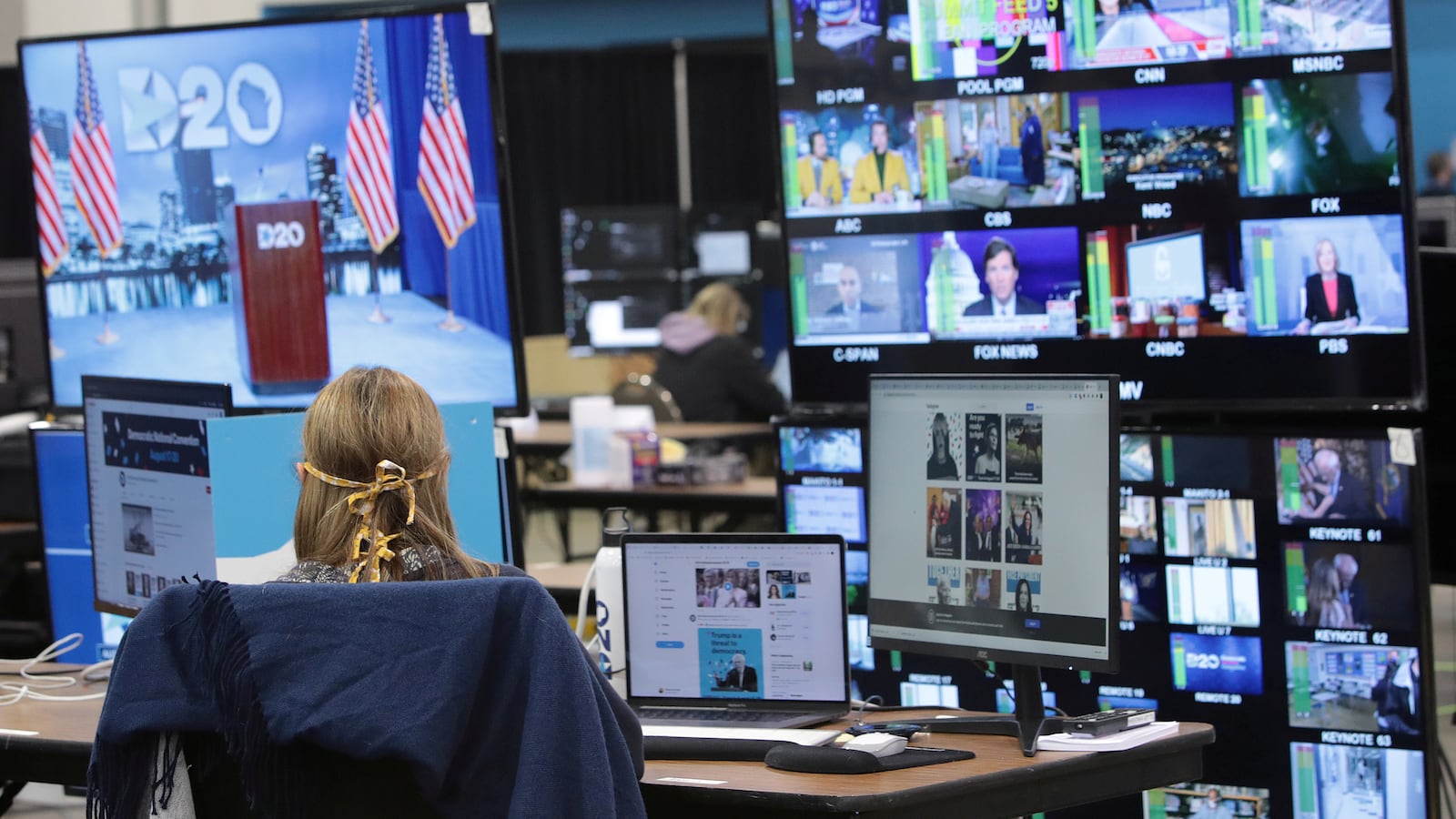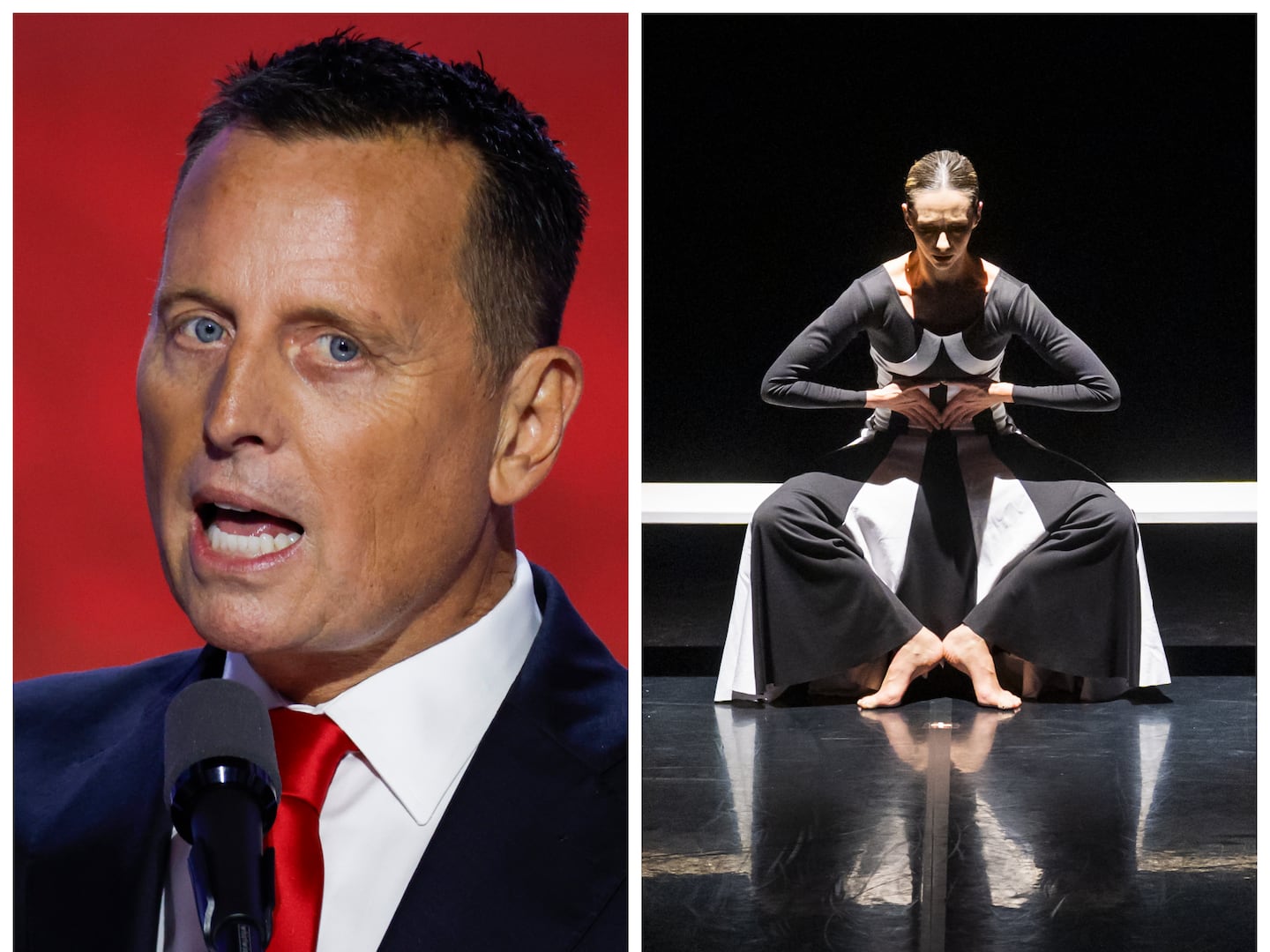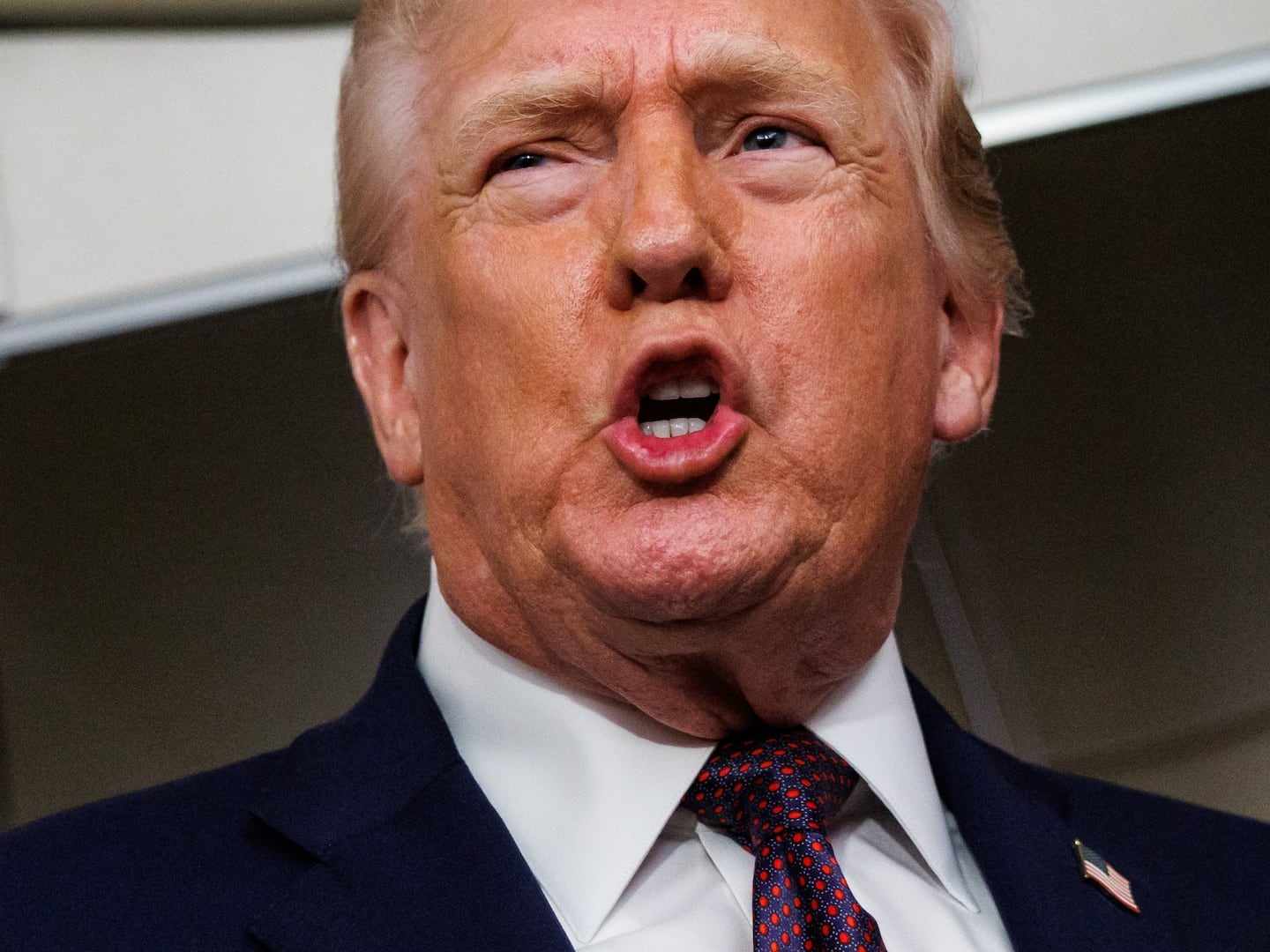The Democratic National Convention opened Monday evening with a disjointed, virtual spectacle loaded with cheesy pre-taped video packages, telethon-like energy, and several unmistakably strange moments befitting our bizarre times.
And though she may not like politics, Michelle Obama was once again saddled with the job of rescuing part of a nominating convention—except this time under far more surreal circumstances than the last.
Four years ago, amid the Kremlin-sponsored airing of the Democratic Party’s dirty laundry, the then-first-lady was tasked with delivering a speech to mend a party divided by a bruising primary contest and the chaos of a massive WikiLeaks dump.
On Monday, she did it again—this time at the tail end of a surreal nominating convention delivered entirely remotely and without any live audience.
Incumbents tend to have the upper hand in politics, and while Trump’s response to the coronavirus pandemic and subsequent social upheaval has seemingly erased his advantage, the president—an ex-reality-TV host, ever the showman—will likely benefit from learning from the Democrats’ mostly strange attempt at navigating the first socially distanced 2020 convention.
The DNC’s opening night seemed at times lost in unexplored territory, aimlessly trying to figure out ways to reproduce the pre-COVID convention benefits of a week of free airtime for partisan programming filled with state and national party stars addressing an easy-to-please arena crowd that would normally shower even the weakest speakers with rapturous applause.
Monday evening’s foray into virtual convention-going was a two-hour-long infomercial featuring prominent lawmakers, small business owners, and Democratic royalty interspersed with the occasional music video-like performances from some of the nation’s least offensive musicians.
Like a telethon or a late-night infomercial, the broadcast wielded all of the tools in its arsenal, including first-person testimonials, musical breaks, and fear. All to send one message to viewers: Buy Biden.
At worst, the format itself suffered the same issues that plague annual state-of-the-union response speeches. The least compelling moments of the night featured lawmakers and also-rans standing behind podiums or in front of a camera with no crowd to feed off, espousing praise for a candidate they didn’t even support during the primary.
The telecast seemed to jump between various themes, featuring everyone from teen activists to former business executives. Topics ranged from serious policy talk about everything from policing to healthcare to the U.S. Postal Service to President Trump’s tweets.
The only discernible theme of the night seemed to be appealing to disenchanted Republicans. Former California Republican gubernatorial candidate Meg Whitman, now CEO of short-form video content platform Quibi, made a pre-recorded appearance. As did former Republican politicians like former Ohio Gov. John Kasich and former Rep. Susan Molinari. Each disgruntled conservative hammered away at Trump’s temperament and his handling of the pandemic,
Of course, no DNC would be complete without its fair share of celebrity pandering. Earlier in the day, Biden—who has thus far shied away from traditional, high-profile sitdowns—sat down for an Elle interview conducted by rapper Cardi B. Just a few hours later, during the DNC telecast, actress Eva Longoria—who emceed the event from a nearly silent studio, which often lent itself to an awkward telethon vibe—interviewed a teen activist, while U.S. women’s soccer star Megan Rapinoe moderated a panel of front-line workers affected by the coronavirus pandemic.
And as a live event reliant upon virtual conference-call technology, there was, of course, plenty of unsubtle Zoom set dressings and symbolism.
Sen. Cory Booker’s shot, for instance, featured an artfully placed copy of The New Jim Crow, an academic tome on systemic racism within the contemporary criminal-justice system. Sen. Catherine Cortez Masto, meanwhile, delivered her address from a noticeably spare kitchen, but with an unsubtle Biden poster lurking in the background. For some reason, as many viewers pointed out, organizers decided to place Sen. Bernie Sanders in front of a large pile of firewood. And Kasich, one of the most buzzed-about speakers of the night, spoke at a literal crossroads, the most hamfisted metaphor of the night.
The telecast succumbed to the same basic issues that plague the average Zoom work call.
During one interview with a farmer impacted by Trump’s policies, viewers could easily hear the squeaking of a door opening and closing slowly in the background of the man’s home. And broadcast delays due to the virtual setting tripped up multiple speakers like Sanders, Gov. Gretchen Whitmer, and Rep. James Clyburn, who all at points stood in awkward silence before millions of viewers, waiting for their cue to begin speaking.
On several occasions, organizers attempted to capture the feeling of live applause, at times cutting to a wall of viewers live-streaming from home not unlike the lagging audiences who appear during NBA bubble playoff games that also began Monday (high-profile Democratic supporter LeBron James, however, seemed to opt to watch the latter).
Still, the telecast did manage to wield its own bizarre and surreal circumstances to its advantage.
The most riveting and haunting moments of the telecast forcefully acknowledged the pain and suffering and human toll that forced the convention to go virtual in the first place.
A somber montage highlighting some of the 170,000 Americans who’ve died from the coronavirus played like an eerie award-show in-memoriam segment but still delivered a punch. The family of George Floyd led a moment of silence for unarmed Black men and women killed by police. And about an hour into the telecast, Longoria introduced Kristin Urquiza, a woman who recalled how one of the last things her Trump-supporting father said to her was that he “felt betrayed by the likes of Donald Trump” as he died from the virus.
“His only pre-existing condition was trusting Donald Trump and for that, he paid with his life,” she said.
The 120-minute spectacle was carried to wildly varying degrees across TV news. Most of the traditional broadcast networks only took the speeches for about an hour. Cable-news networks MSNBC and CNN, meanwhile, ran the full event, which equated to a two-hour-long commercial for the Democratic Party.
And Fox News, the president’s preferred network, treated the event largely as b-roll for anti-Democratic punditry, airing the speeches on mute while partisan pundits cast the usual aspersions at the channel political enemies.
But even Fox couldn’t remain entirely dismissive of the Democratic event. When it came to the one speech that will be talked about for days—that of Michelle Obama—the network’s reaction panel positively gushed over her, remarking how she even surpassed her well-received speech at the 2016 Democratic convention.
Indeed, it was striking to see Obama without the raucous applause of a packed arena. But sitting alone in a slightly dim room with little else but a Biden 2020 poster, the former first lady delivered a deeply somber and at times foreboding address that warned about the negative consequences of making the same mistake twice.
She acknowledged that Biden is “not perfect,” but capped off a two-hour spectacle loaded with feel-good, patriotic telethon moments by getting intensely real. “If you take one thing from my words tonight, it is this: if you think things cannot possibly get worse, trust me, they can; and they will if we don't make a change in this election,” she said.
When Obama recorded her speech earlier this month, she noted that more than 150,000 had died. By the time it aired on Monday evening, that figure was more than 170,000.






